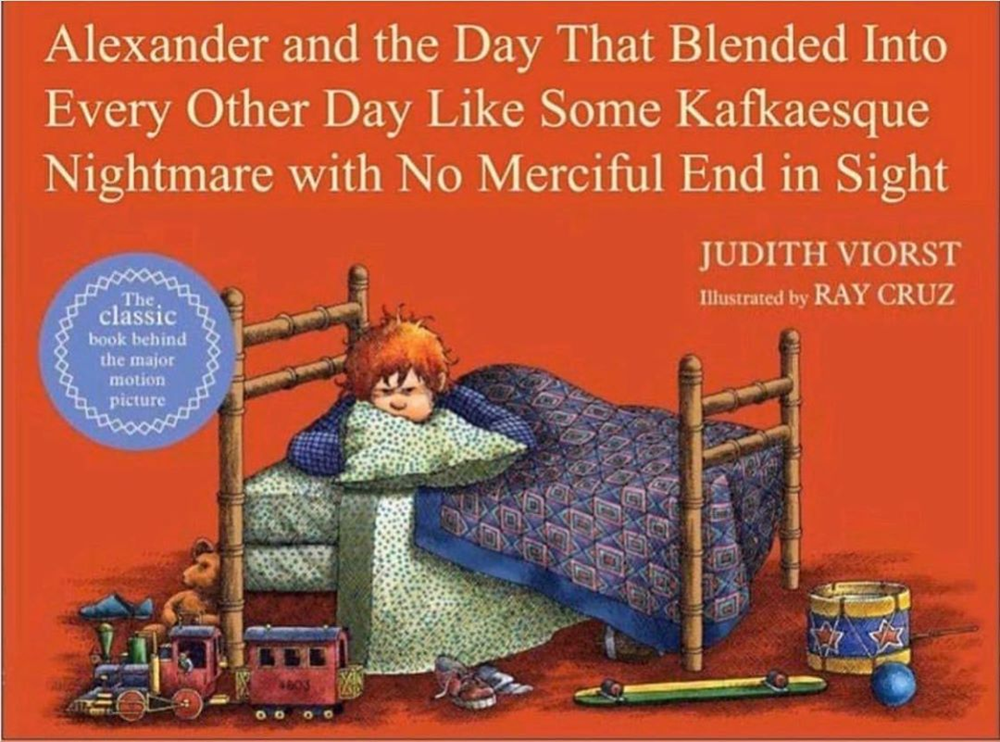
Routine. You love it or you hate it. It sucks your soul or saves it. You probably know which is true for you.
But like it or loathe it we're people who like habits and patterns. If you've made you way to selfharmUK it's probably because self-harm is, or has been, a habit you've relied on to help you cope. So you're not a total stranger to routine.
Psychologists (like our good friend Dr Kate Middleton at Mind and Soul Foundation) have been telling us for weeks the routine is going to help us through lockdown. But how do we do that in a way that feels meaningful and helpful rather than just artificial, pointless and soul-sucking?
There are probably some routines being forced on you. School work. Family meals. But that leaves a lot of the day free.
The choices we have can be paralysing. I know that a lot of our choices are curtailed right now, but there are still a bazillion TikToks or YouTube clips we could watch, social media posts to scroll through, and streaming services offering us endless entertainment.
When we're stressed, or dealing with hard emotions like anxiety, grief, fear, anger (and to some extent, we all have those going on right now) we find it harder to make choices - any choices - let alone good ones. It's harder to be rational.
And that's where routine can help us out. With some kind of plan or pattern in place, we don't have to make so many choices. We can structure our time so that we do the things that are good for us but that we're not good at choosing (getting out of the house, if we're allowed; talking to someone; doing something creative).
And routine helps us to escape from the sense that every day and every moment are just blending into one long meaningless blob. (Does anyone else feel like they're living out this story, or is it just me?).

So here are some practical tips from one routine-loving gal, to help you make your own version that does your soul some good.
1. Start with your meals (especially if someone else decides what time they happen), and the time you want to be asleep. If you have to be in online lessons at specific times put them in too. That gives your days a basic shape.
2. Put in a trip outside if you're allowed to. When will you walk the dog, or ride your bike (or roller-skates, or skateboard), or stroll through the neighbourhood? Make a plan so you don't just keep waiting till you feel like it.
3. Think about what things you enjoy and make sure they get some time in your day. I wrote out a list early in lockdown of things that left me feeling good, because I realised I was spending so long looking after everyone else in my house that I wasn't making time for those things and then that was making me grumpy. My list includes reading novels, talking to my best friends, watching romcoms (guilty pleasure), making clothes and doing yoga. What's on your list?
4. It might overlap with your last one, but and a way to connect with someone you like. It might be FaceTiming your mate, calling your nan, chatting with your sister, or messaging your school friends. But connection fires our brains in good ways. And even though it's not the same as being in the room with them, connection still counts for something. So put it in your day.
You don't have to account for every minute or hour in your day. And don't make a super-long super-tight schedule, because you need some margin in it. Others may disrupt it, and you might just hit a wall and need to crash in the middle of the afternoon. But give some shape to your day. Help out your poor, tired brain and give it a break from constant decision making. Help it to forget all that time stretching out ahead of you.
Routine can really help you. We hope you'll find one that works for you.